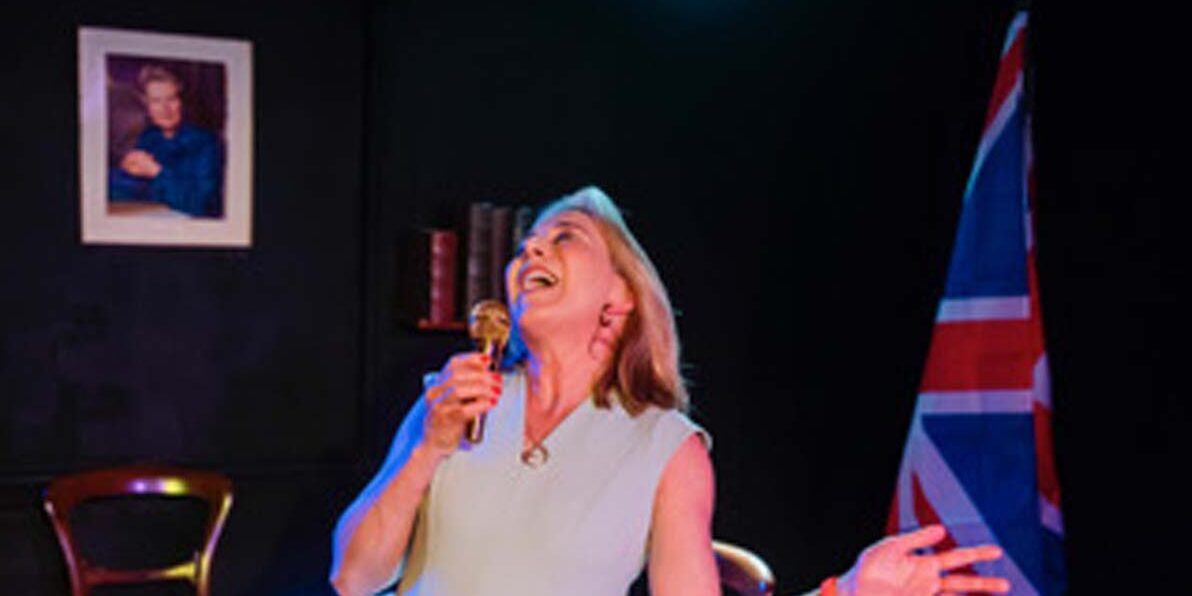The Last Days of Liz Truss is a hilarious satire that imagines the former Prime Minister as a romantic megalomaniac and narcissist. Played with fierce conviction by Emma Wilkinson Wright, Truss is portrayed as a character who monologues not just about politics but also about her own self-obsessed history and delusional sense of grandeur.
Truss’ short-lived premiership has, in hindsight, become a cornerstone of dark comedy and political mockery. It’s a record of a government that plunged into catastrophe so rapidly that it couldn’t even manage the basic effort of saving face—though it certainly tried. The administration’s lofty promises were quickly undone by sheer incompetence, and the play taps into this tragicomic history, giving the character of Liz Truss full license to flatter herself in increasingly absurd ways. She speaks directly to the audience, and the comedy is built on a deeply ironic foundation. The grandiose self-praise Truss heaps upon herself is not only ridiculous but also, in light of what we know about the disastrous aftermath, darkly amusing.
The layers of comedic irony are deftly woven throughout the play. Truss’ reflections on her past position her as a rebellious, feminist visionary, a misunderstood genius on a sacred mission to show the world what true British ambition looks like. She believes she is mounting a resistance against the establishment’s economic status quo, while paradoxically surrounding herself with sycophantic, unimaginative conservative allies. Her political rhetoric demands more from the institutions around her—and from the public—than from herself. When her fragile political empire inevitably collapses, she blames the media, accusing them of refusing to give her a fair chance.
The play’s ironies are rich and multifaceted—personal, social, intellectual, and political. They are as insightful as they are hilarious, unpacking the contradictions, delusions, and egos that define not just Liz Truss, but British politics at large. The set design underscores this tension, placing Truss in a stately room next to a bold portrait of Margaret Thatcher, subtly implying that she falls short of living up to the legacy she imagines for herself.
The writing is sharp and cleverly conveys these ironies, rewarding audiences with a deeper understanding of political patterns, social dynamics, and historical context. However, the high-brow humour may leave some in the audience feeling unamused or indifferent during certain moments. The exaggerated comedic moments, like Truss’ karaoke performances by Emma Wilkinson Wright, don’t always land as effectively as intended. Still, there are plenty of other moments of ridiculous swagger and flair that hit the mark, and the humour shines brightest in these moments of absurdity.
Steve Nallon’s voice-over work and impressions are a highlight, adding classic caricatures of British politicians and media vultures. His performance is essential to the play’s satirical dynamic, capturing the merciless interplay between Truss and both her followers and critics. Nallon’s caricatures perfectly capture the tone of political farce that underpins the play.
In sum, The Last Days of Liz Truss is a biting, ironic, and deeply funny satire that deftly captures the contradictions at the heart of British politics, offering a comedic yet insightful lens on one of the most chaotic periods in recent political history.
‘The Last Days of Liz Truss’
By Greg Wilkinson
Directed by Anthony Shrubsall
Set and Costume Designer: Male Arcucci
Cast includes Emma Wilkinson Wright and Steve Nallon
Until 14th December

